
Fine Motor Skills: Building Precise Pathways for Childhood Development
Fine Motor Skills: Building Precise Pathways for Childhood Development
Fine motor skills are the intricate movements that involve the coordination and control of small muscles, particularly those in the hands and fingers. From buttoning a shirt to tying shoelaces or even writing with a pen, fine motor skills play a vital role in daily activities and academic success. In this blog, we will explore the significance of fine motor skills, their impact on different aspects of development, and practical strategies to foster their growth in children.
The Importance of Fine Motor Skills
Fine motor skills serve as building blocks for various essential tasks and developmental areas in a child's life. Here are some key reasons why they are significant:
1. Academic Readiness:

Fine motor skills are crucial for school readiness. They enable children to hold pencils and other writing tools, develop proper handwriting techniques, and perform precise movements required for activities like cutting with scissors, completing puzzles, and manipulating small objects during math and science activities.
2. Self-Care and Independence:

Fine motor skills are essential for self-help tasks such as buttoning clothes, zipping zippers, tying shoelaces, brushing teeth, and feeding oneself. Developing these skills empowers children to become more independent in their daily routines.
3. Cognitive Development:
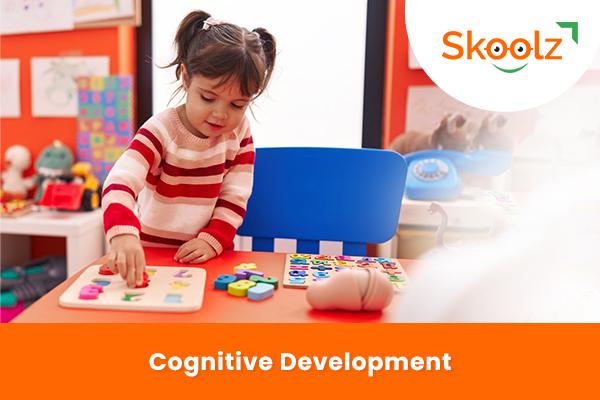
Fine motor skills contribute to cognitive development by fostering hand-eye coordination, spatial awareness, and problem-solving abilities. When children engage in activities that require precise movements, they enhance their ability to plan, execute, and manipulate objects in their environment.
4. Creativity and Expression:

Fine motor skills enable children to engage in artistic and creative activities such as drawing, painting, and crafting. These skills allow children to express their thoughts, ideas, and emotions in tangible forms.
4. Social Interaction:
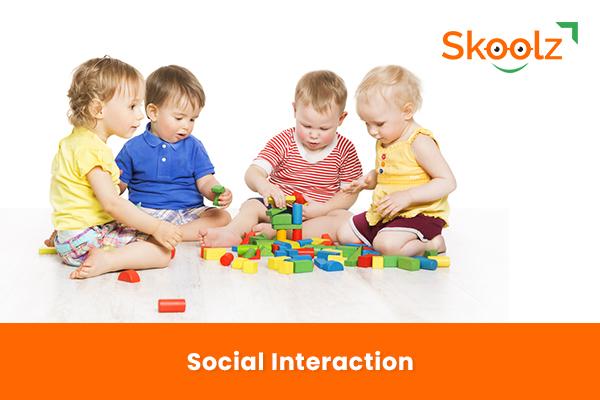
Fine motor activities often involve collaboration and cooperation, providing opportunities for social interaction. Whether it's building with blocks, playing board games, or engaging in artistic projects, children develop social skills while refining their fine motor abilities.
Fostering Fine Motor Skill Development
Here are some practical strategies to support the development of fine motor skills in children:
1. Manipulative Play:
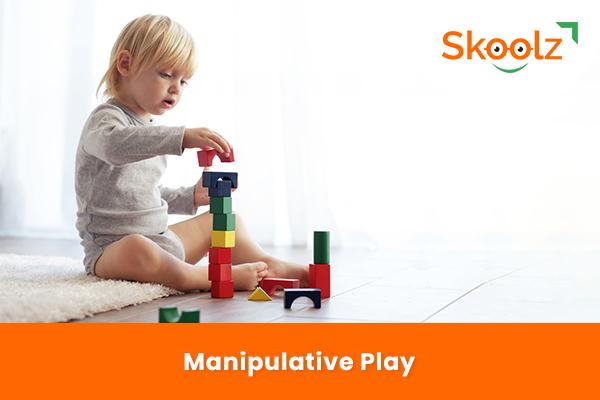
Provide toys and materials that require precise manipulation, such as building blocks, puzzles, LEGO sets, and small construction toys. These activities help children refine their hand-eye coordination, grasp, and finger dexterity.
2. Art and Craft Activities:
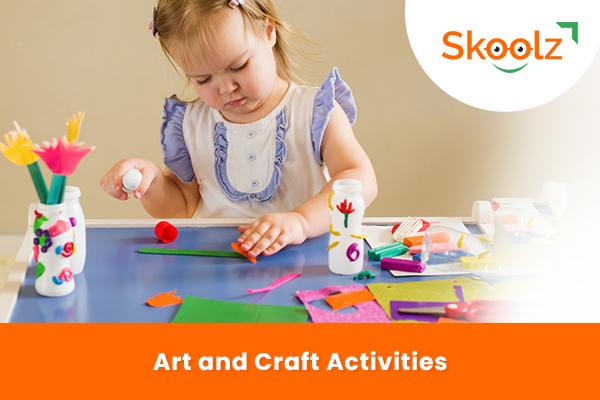
Encourage children to engage in art projects, drawing, coloring, cutting, and pasting. These activities enhance hand control, pencil grip, and hand strength while promoting creativity and self-expression.
3. Play with Small Objects:
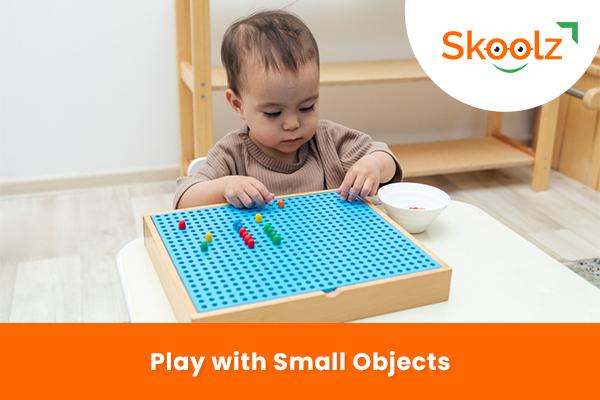
Offer opportunities for children to play with small objects like beads, buttons, pegboards, and lacing cards. These activities develop finger dexterity, hand-eye coordination, and pincer grip.
4. Playdough and Clay:
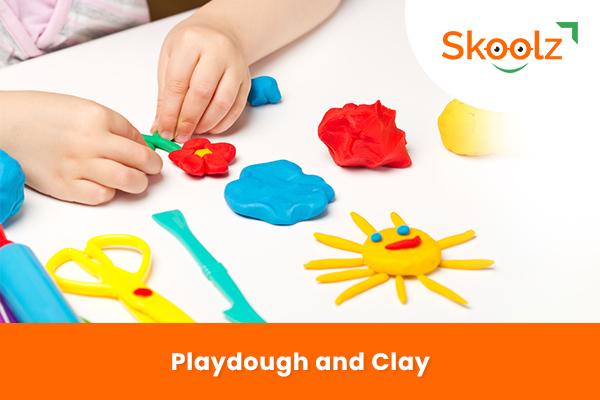
Playing with playdough or clay allows children to engage their fingers in kneading, rolling, shaping, and cutting. These activities promote finger strength, coordination, and sensory exploration.
5. Fine Motor Tools:
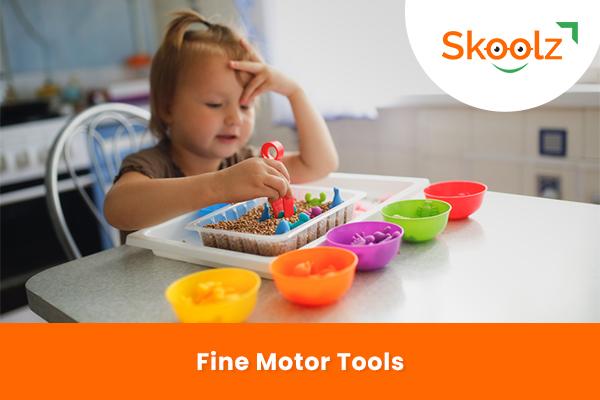
Introduce tools specifically designed to develop fine motor skills, such as tweezers, eye droppers, tongs, and chopsticks. These tools encourage precision, finger control, and hand strength.
6. Scissor Skills:
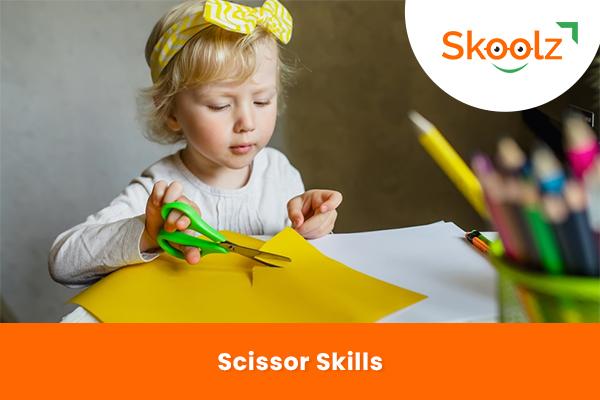
Provide child-safe scissors and activities that involve cutting various materials like paper, straws, or play dough. This helps children develop hand strength, bilateral coordination, and cutting accuracy.
7. Sensory Play:
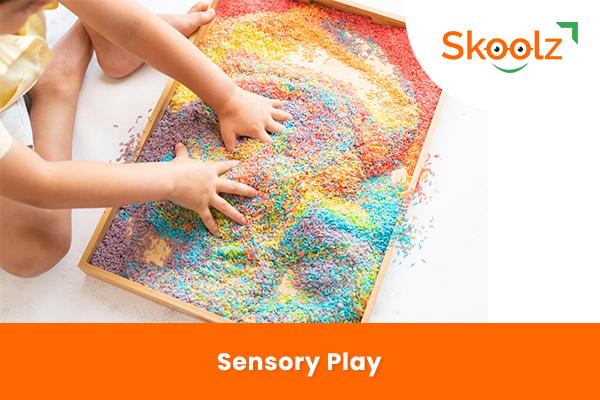
Engage children in sensory play activities that involve pouring, scooping, sorting, and transferring materials like rice, sand, water, or beans. These activities enhance fine motor skills while stimulating sensory exploration.
Conclusion:
Fine motor skills are vital for a child's academic success, self-care abilities, cognitive development, creativity, and social interaction by incorporating playfulness.
Disclaimer:
The information in the blogs is intended to offer general guidance on various aspects of toddler development. However, it is essential to note that every child is unique, and individual circumstances may vary. The content in our blogs should not be considered a substitute for professional medical advice. If you observe any critical symptoms or have specific concerns about your child's health, we strongly advise consulting with a qualified pediatrician. We do not assume any responsibility or liability for actions taken based on the information provided. Always seek the expertise of a medical professional for any specific concerns or medical attention your child may require. By accessing our toddler blogs, you acknowledge the importance of consulting with a pediatrician for any critical symptoms or concerns.
 Written by:
Written by:
Bhawana Mohane
Digital Marketer

Fine Motor Skills: Building Precise Pathways for Childhood Development
Fine motor skills are the intricate movements that involve the coordination and control of small muscles, particularly those in the hands and fingers. From buttoning a shirt to tying shoelaces or even writing with a pen, fine motor skills play a vital role in daily activities and academic success. In this blog, we will explore the significance of fine motor skills, their impact on different aspects of development, and practical strategies to foster their growth in children.
The Importance of Fine Motor Skills
Fine motor skills serve as building blocks for various essential tasks and developmental areas in a child's life. Here are some key reasons why they are significant:
1. Academic Readiness:

Fine motor skills are crucial for school readiness. They enable children to hold pencils and other writing tools, develop proper handwriting techniques, and perform precise movements required for activities like cutting with scissors, completing puzzles, and manipulating small objects during math and science activities.
2. Self-Care and Independence:

Fine motor skills are essential for self-help tasks such as buttoning clothes, zipping zippers, tying shoelaces, brushing teeth, and feeding oneself. Developing these skills empowers children to become more independent in their daily routines.
3. Cognitive Development:

Fine motor skills contribute to cognitive development by fostering hand-eye coordination, spatial awareness, and problem-solving abilities. When children engage in activities that require precise movements, they enhance their ability to plan, execute, and manipulate objects in their environment.
4. Creativity and Expression:

Fine motor skills enable children to engage in artistic and creative activities such as drawing, painting, and crafting. These skills allow children to express their thoughts, ideas, and emotions in tangible forms.
4. Social Interaction:

Fine motor activities often involve collaboration and cooperation, providing opportunities for social interaction. Whether it's building with blocks, playing board games, or engaging in artistic projects, children develop social skills while refining their fine motor abilities.
Fostering Fine Motor Skill Development
Here are some practical strategies to support the development of fine motor skills in children:
1. Manipulative Play:

Provide toys and materials that require precise manipulation, such as building blocks, puzzles, LEGO sets, and small construction toys. These activities help children refine their hand-eye coordination, grasp, and finger dexterity.
2. Art and Craft Activities:

Encourage children to engage in art projects, drawing, coloring, cutting, and pasting. These activities enhance hand control, pencil grip, and hand strength while promoting creativity and self-expression.
3. Play with Small Objects:

Offer opportunities for children to play with small objects like beads, buttons, pegboards, and lacing cards. These activities develop finger dexterity, hand-eye coordination, and pincer grip.
4. Playdough and Clay:

Playing with playdough or clay allows children to engage their fingers in kneading, rolling, shaping, and cutting. These activities promote finger strength, coordination, and sensory exploration.
5. Fine Motor Tools:

Introduce tools specifically designed to develop fine motor skills, such as tweezers, eye droppers, tongs, and chopsticks. These tools encourage precision, finger control, and hand strength.
6. Scissor Skills:

Provide child-safe scissors and activities that involve cutting various materials like paper, straws, or play dough. This helps children develop hand strength, bilateral coordination, and cutting accuracy.
7. Sensory Play:

Engage children in sensory play activities that involve pouring, scooping, sorting, and transferring materials like rice, sand, water, or beans. These activities enhance fine motor skills while stimulating sensory exploration.
Conclusion:
Fine motor skills are vital for a child's academic success, self-care abilities, cognitive development, creativity, and social interaction by incorporating playfulness.
Disclaimer:
The information in the blogs is intended to offer general guidance on various aspects of toddler development. However, it is essential to note that every child is unique, and individual circumstances may vary. The content in our blogs should not be considered a substitute for professional medical advice. If you observe any critical symptoms or have specific concerns about your child's health, we strongly advise consulting with a qualified pediatrician. We do not assume any responsibility or liability for actions taken based on the information provided. Always seek the expertise of a medical professional for any specific concerns or medical attention your child may require. By accessing our toddler blogs, you acknowledge the importance of consulting with a pediatrician for any critical symptoms or concerns.
 Written by:
Written by:
Bhawana Mohane
Digital Marketer




